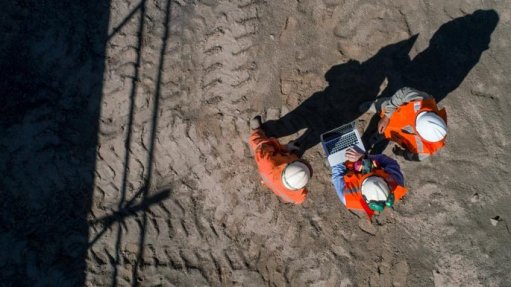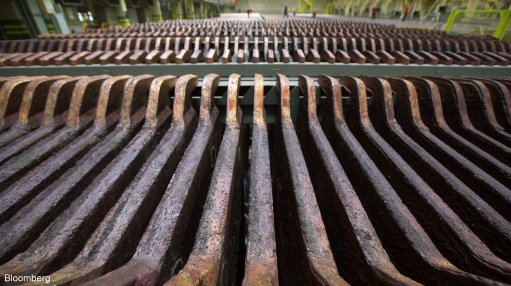Improving SA roads, a continued goal in 2023 – AA
Roadside assistance company Automobile Association of South Africa (AA) CEO Willem Groenewald says discussions with colleagues from global automotive clubs on the issues they currently face invariably focus on two main issues: electric vehicles (EVs) and the adoption of e-fuels (fuels produced from renewable or decarbonised electricity).
These discussions are also, invariably, “light years” away from the realties facing South Africans - EVs locally are simply too expensive to result in mass purchasing, and given the country’s other major challenges such as a lack of reliable electricity supply, e-fuels is low on the priority list, he notes.
This is not to say that discussions on these issues do not take place in South Africa, they do, but as the AA, the company’s focus is more centralised around issues with a direct and immediate bearing on the country’s public.
Among these are the country’s poor road safety record, poor road infrastructure, the inadequate provision of public transport, and the provision of safer vehicles.
Road safety remains a major problem for the government, he says. While it grapples with other issues such as rolling blackouts and corruption, the issue of road safety appears to be pushed further back on the agenda with every passing year.
“South Africa ranks as one of the countries in the world with the highest annual road fatality statistics with about 13 000 people dying on the country’s roads each year.”
According to statistics from road safety agency Road Traffic Management Corporation (RTMC), this equates to a loss to the economy of about R200-billion annually (based on, among other factors, lost productivity, the cost of medical treatment, legal and emergency response costs, and infrastructure damage), notes Groenewald.
Given the enormity of the financial losses, not to mention the emotional losses suffered by victims, it is perplexing that the issue of road safety does not enjoy more of government’s attention.
“Even more perplexing is the fact that solutions offered in relation to road safety appear to be ignored.”
In 2019, a committee established by former Minister of Transport Dipuo Peters, the Traffic Law Enforcement Review Committee (TLERC), delivered a report outlining major challenges with practical solutions to improve traffic law enforcement in South Africa. Among these was the doubling of the number of traffic law enforcers on the country’s roads, and better coordination between law enforcement and the judiciary.
The report noted, and the AA endorses the view, that a major hurdle to improving road safety remains the lack of consequences for offenders. Groenewald says that on the upper end of this problem is that only 8% of those arrested for drunk driving are prosecuted while on the ‘lower end’, those guilty of moving violations such as driving while texting, or those overtaking when it is dangerous to do so are rarely, if ever, even stopped.
Groenewald says that this speaks directly to not only the lack of capacity within current traffic law enforcement, but also of the fact that traffic violations are seen as low priority by the courts.
The AA will continue to advocate for improvements in this regard, and the TLERC recommendations are set to be implemented in 2023, this is unlikely and the current situation will, unfortunately, not improve, at least not without the necessary political will to do so, he states.
Moreover, while much of the country’s road network is good, especially the main roads, many provincial, regional, and local roads require urgent attention. These roads are not only characterised by potholes which seemingly get worse each year, but the surrounding infrastructure is also not maintained.
“Sidewalks are not cleared and cleaned (resulting in pedestrians using roads to walk on), grass on islands is not cut (which hampers visibility), and streetlights are either not functioning altogether, or are out because of rolling blackouts, all of which hamper road safety.”
These are just some of the issues that will remain high on the company’s agenda in the new year, along with continued calls by the AA for a review of the country’s fuel pricing mechanism.
While it is too early to forecast how the fuel price will move in 2023, we know that the fuel pricing formula will stay the same. In terms of this formula, close on R4 is ringfenced from every litre of petrol and diesel for the General Fuel Levy (GFL) which goes directly to Treasury. A further R2.18/ℓ is ringfenced for the Road Accident Fund (RAF) levy which goes to the RAF to compensate victims of crashes.
“Our view on the taxes added to fuel is that the R3.94/ℓ for the GFL cannot easily be eliminated.”
Government will find other ways to raise this money which will, effectively, nullify any possible gains should it be taken away. Instead, better checks and balances are needed to deal with the allocation of this money, especially considering continued misappropriation of funds at all levels of governance, states Groenewald.
However, Groenewald notes that the AA believes the RAF levy of R2.18 should be scrapped immediately, and that urgent intervention methods be applied to the dysfunctional RAF, an institution that is notoriously poorly managed and drowning in debt.
Looking ahead to 2023, there are key areas that require continued and intensive scrutiny and advocacy. There are issues on a global level that need discussion, but the AA’s view is that these discussions cannot occur until core issues regarding transportation and mobility in South Africa are adequately addressed.
“It will remain the AA’s goal to keep these issues on the local agenda, to agitate for meaningful improvements, and to see results that benefit all South Africans who so desperately need them.”
Groenewald will vacate his position as CEO to take up the role of Secretary General: Mobility and Tourism of the Federation Internationale de l’Automobile (FIA) in Paris, France on April 1, 2023.
Comments
Press Office
Announcements
What's On
Subscribe to improve your user experience...
Option 1 (equivalent of R125 a month):
Receive a weekly copy of Creamer Media's Engineering News & Mining Weekly magazine
(print copy for those in South Africa and e-magazine for those outside of South Africa)
Receive daily email newsletters
Access to full search results
Access archive of magazine back copies
Access to Projects in Progress
Access to ONE Research Report of your choice in PDF format
Option 2 (equivalent of R375 a month):
All benefits from Option 1
PLUS
Access to Creamer Media's Research Channel Africa for ALL Research Reports, in PDF format, on various industrial and mining sectors
including Electricity; Water; Energy Transition; Hydrogen; Roads, Rail and Ports; Coal; Gold; Platinum; Battery Metals; etc.
Already a subscriber?
Forgotten your password?
Receive weekly copy of Creamer Media's Engineering News & Mining Weekly magazine (print copy for those in South Africa and e-magazine for those outside of South Africa)
➕
Recieve daily email newsletters
➕
Access to full search results
➕
Access archive of magazine back copies
➕
Access to Projects in Progress
➕
Access to ONE Research Report of your choice in PDF format
RESEARCH CHANNEL AFRICA
R4500 (equivalent of R375 a month)
SUBSCRIBEAll benefits from Option 1
➕
Access to Creamer Media's Research Channel Africa for ALL Research Reports on various industrial and mining sectors, in PDF format, including on:
Electricity
➕
Water
➕
Energy Transition
➕
Hydrogen
➕
Roads, Rail and Ports
➕
Coal
➕
Gold
➕
Platinum
➕
Battery Metals
➕
etc.
Receive all benefits from Option 1 or Option 2 delivered to numerous people at your company
➕
Multiple User names and Passwords for simultaneous log-ins
➕
Intranet integration access to all in your organisation


















